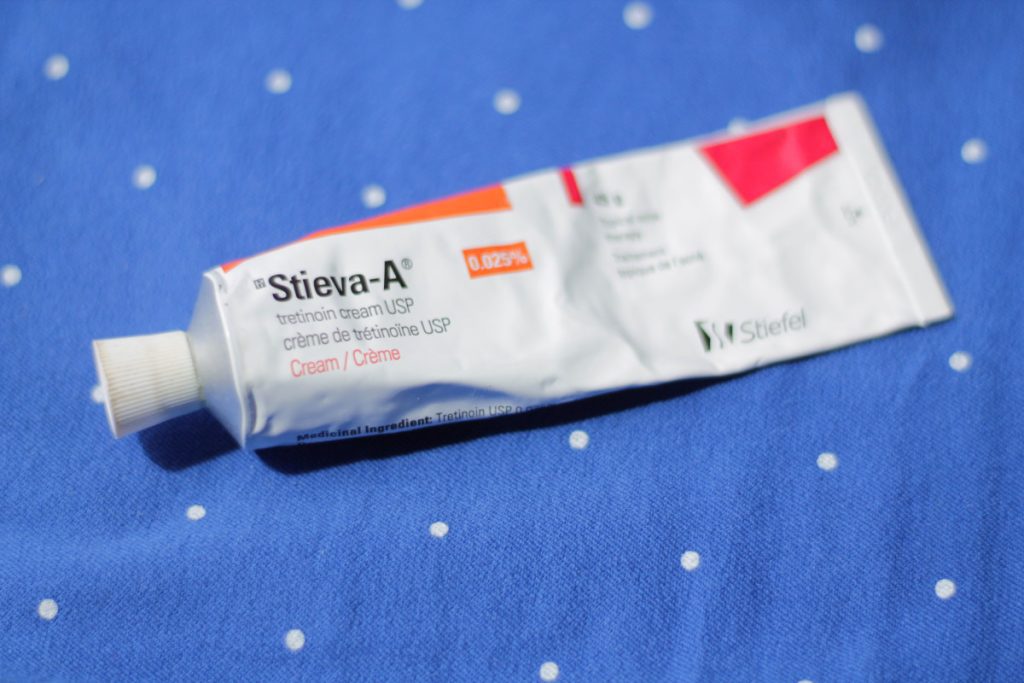What is Tretinoin Gel?


Tretinoin gel can come in a variety of formulas and concentrations depending on your skin type. It can be used in conjunction with other skin care products to help minimize side effects like redness, dryness, and irritation.
Tretinoin can also decrease areas of hyperpigmentation due to acne by promoting the turnover of skin cells.
Acne Treatment
Tretinoin is an effective acne treatment, and it can help minimize the appearance of wrinkles and other signs of aging. The medication works by unclogging pores, reducing inflammation and boosting collagen formation. It also prevents bacteria from colonizing the pores, which can cause more acne.
When applying tretinoin gel for acne, cleanse the skin with a gentle soap or face wash and then pat it dry. Avoid scrubbing the skin, which can lead to irritation. Afterward, wait a few minutes before applying the medication.
Use a pea-sized amount of the product on the skin. Remember that a little goes a long way, and using more than recommended will likely cause irritation. After applying the tretinoin, moisturize with a light, non-comedogenic cream or lotion. If you’re unsure about the best moisturizer for your skin type, ask your dermatologist. It’s also a good idea to avoid using products that are too drying, like astringents and facial cleansers with alcohol in them.
Anti-Aging Treatment
Initially developed as an acne treatment, tretinoin has been shown to unclog pores and reduce fine lines and wrinkles. In addition, it stimulates new collagen production which helps minimize the appearance of age spots and rough patches.
As you grow older, your skin’s natural cell renewal slows down, causing the outer layer of skin to thin out and develop fine lines and wrinkles. Tretinoin accelerates the growth of fresh, new cells and boosts collagen levels to improve the appearance of wrinkling, uneven skin tone, dryness and discoloration1.
It also works well on actinic keratoses, a type of pre-cancerous hyperpigmented lesion that can result from sun exposure. Since it makes your skin more sensitive to sunlight, be sure to use a broad-spectrum sunscreen (even on cloudy days) when using tretinoin. It’s important to use this medication exactly as prescribed by your doctor. Wash your hands before and after applying it, and avoid rubbing it into the corners of your eyes, ears or mouth.
Skin Brightening Treatment
Tretinoin reduces the appearance of fine lines and wrinkles by promoting the growth of new skin cells. It also improves sun damage and evens out dark spots. It does this by decreasing the production of melanin, the natural pigment that creates your skin tone.
Unlike other skin lighteners, such as hydroquinone, tretinoin increases your cell turnover but does not actually cause skin lightening. However, it significantly enhances the penetration of hydroquinone and other lightening agents.
The retinoid compound in Obagi’s tretinoin gel, which is time released into the skin, can prevent the break down of collagen and other important proteins in your skin caused by UV rays. It can also improve the elasticity and tightness of your skin. In addition, it can be used to treat a type of cancer called Kaposi sarcoma in people with weakened immune systems by slowing the growth of tumor cells. It is available by prescription only. Using a moisturizer before applying tretinoin will help reduce the dryness that sometimes occurs when using this medication.
Skin Resurfacing Treatment
Retinol is a super power topical that treats multiple skin concerns: acne scars, hyperpigmentation, fine lines and wrinkles & melasma. It unclogs pores & reduces inflammation, & it can lighten dark spots & fade sun damage. It can also boost collagen production & improve skin texture & tone.
It works by speeding up the skin cell turnover process, causing older cells to die, and newer, healthier ones to replace them. It can also stimulate collagen production & increase blood flow to the skin.
It can help fade blotches & even out your skin tone, but it can’t fully correct discoloration caused by melasma or other conditions. It can also prevent age-related skin discoloration by reducing the accumulation of melanin in certain areas. It’s important to avoid sunburn or open wounds while using retinol, and it should not be used by pregnant women or those breastfeeding because of potential risks to the fetus. Those with sensitive skin, rosacea or eczema may find it irritating.





